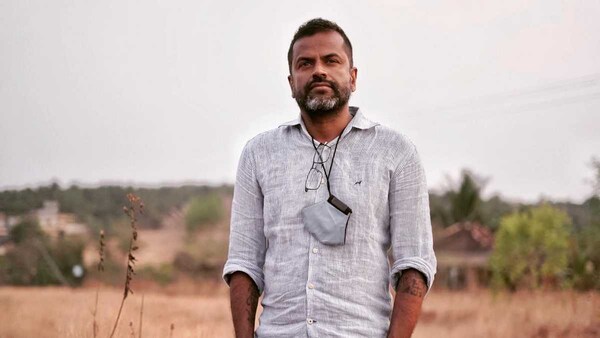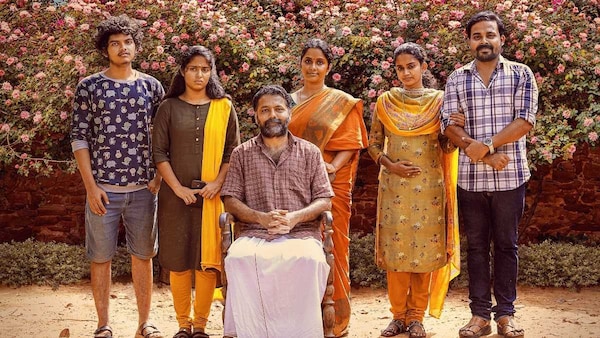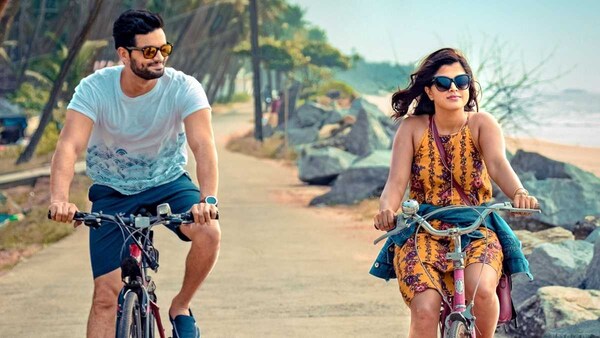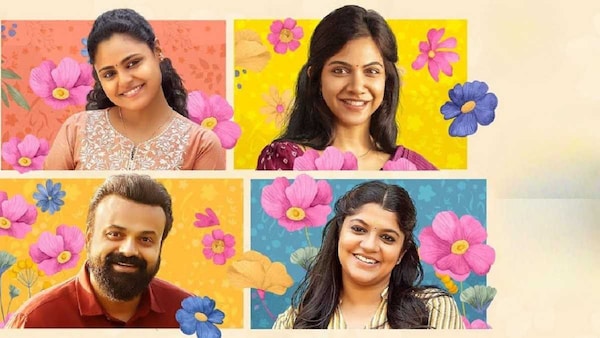The Senna Hegde Interview | 'I Take Pride In My Sense Of Humour'
Filmmaker Senna Hegde speaks with Neelima Menon about his unusual creative process, and how he brings his evocative stories to life on screen.

Last Updated: 01.54 PM, Aug 04, 2023
GIVEN A CHOICE, Senna Hegde would make all his films in Kanhangad. With a Kasargod father and Karnataka mother, hailing from a town that bordered between two states, he has always felt marginalised. Be it the topography or the language that alienated him from the rest of the state, Senna says making films set in his part of the world always gives him a sense of self. It’s his way of reclaiming a position on Malayalam cinema’s map with stories about people and a land that’s rarely documented. He wanted to bring focus on actors who haven’t had the opportunity to flex their craft compared to people from the rest of Kerala. He wants to be seen and heard, through his films.
That’s how Senna gave a spin to a seemingly done-to-death story of a family dealing with a wedding, a daughter’s elopement, and an egotistical father in a small town in North Kerala in Thinkalazhcha Nishchayam (2021). In hindsight, everything was familiar, just that he elevates the narrative by getting the topography right and seamlessly captures the nuances of a community, including the musicality of their local slang, the routine, conventions, occupation, food, and culture to their social conditioning. Senna lends it a signature that’s difficult to duplicate.
Senna who did Business Analysis and later worked in the ad industry for eight years admits that “he could figure out the theoretical knowledge more than on paper due to his ad stint”.

He always wanted to make one film in his lifetime. Since technology had not evolved as it is now, he felt the ad world was the next best option. In 2014, he quit his job and made a small-budget movie called O-41, based in a small town, with a backdrop of volleyball. He had a shoe-sting budget, a small crew, and a bunch of neighbourhood kids. Though it wasn’t released in theatres, the film premiered at the 11th 'Cinema on the Bayou' film festival in Lafayette. Anurag Kashyap shared the trailer and suddenly Senna felt himself being placed on the map of Indian cinema.
Then he made Kannada rom-com Katheyondu Shuruvagide (2018), which was co-produced by Rakshith Shetty. But Senna never made a Kannada film after that. This despite the influence of both cultures in his upbringing. He says he grew up on Malayalam films and wants to keep making them.
“You are what your thoughts are. It will be my experience, or what I have seen, read, or watched. It’s only life experiences that make you write the way you write. I am sure there are elements of me in them. Kanjangadu is my comfort zone, and I am lazy and quite a homebody. I would rather wake up in the morning, go to the shoot next door and come back in the evening. That kind of comfort makes it easier for me to work. Besides, this land is still unexplored, and we have such excellent technicians,” says Senna.
In that way, Padmini, his most recent film, headlining Kunchacko Boban and Aparna Balamurali, isn’t exactly up his alley if you discount the rom-com bit. To begin with, it’s the first film he hasn’t written (Deepu Pradeep who wrote Kunjiramayanam has written the screenplay) and it isn’t set in Kanjangadu. It’s also a project that was “assembled” for him. Deepu approached him with a script and Kunchacko Boban’s dates and wondered if he would direct it. “I liked most of it. I had some inhibitions here and there and we reworked it.” Senna, who has always written his own films, quipped that if the “movie didn’t work (he) could always point fingers at someone else.”
He thought the process was fun as they were mostly on the same page. “The whole purpose was — you convince me, or I convince you and one of them works, we stick to that. We might collaborate next year.”

Senna’s writings have a native, sharp humour that streams organically in the narrative. He pokes fun at the current socio-political issues with a subtlety that’s reminiscent of Sreenivasan’s writings. But he admits what sounds good on paper won't necessarily translate well on screen. “I think it has got to do with the delivery. Some work beautifully and some you can’t control. It sounds really good on your head. It’s a combination of the right actors, right punctuation, silence, and words.”
He says if you get the laughs then and there on the shoot, that makes a very good first impression. Then there is hope! “It is easier to get laughter from a word or a line but when the whole scene has to work, then it is challenging,” he muses. Not surprisingly, Thinkalazhcha Nishchayam aced that challenge beautifully!
Senna confides that his writing process is very erratic. Most times, he doesn’t know what he is writing till a particular point. Of course, he has an idea about the kind of film he wants to make. Perhaps a line or two more about it. “You get so many ideas in a day, and you think you can make a screenplay out of it… 99 percent of the time that won’t happen,” he observes.
Some ideas keep coming back to him and then he starts working on them. Even there, he says he has no clarity about a beginning, middle or end. “I usually craft scenes. Let’s say we are having a conversation and I am triggered by something funny you said. I take that and create a random scene and put it on a board. There will be tons of such scenes. Then I somehow link everything together and end up with something of a screenplay and work on that.”
He says when creating this fictional world, you can pretty much put anything in that world. There will be a bunch of scenes filled with various emotions and he tries to bring these scenes into that screenplay and start a thread. It is at this point that he starts to think of a beginning and a closure.

Thinkalazhcha Nishchayam was also conjured up through this process. “It’s something that keeps happening where I come from,” says Senna. “A bride-to-be runs away after her engagement, and I have a thread to follow. It’s not a very original idea. I think the execution is where I scored.”
Is there not a character development process as well? Of course, Senna hastens to add. “Whatever scenes I have done, I try to bring those characters into these scenes. These scenes have certain elements which will probably build their characters. I try to bring that element into the remaining scenes.”
He has this interesting character-building tip. “If the woman is very opinionated, I write that in a scene, and then it becomes one of her characteristics. And in the remaining scenes, I make sure that she has a mind of her own.”
Senna says this process has helped him dodge writer’s block. And of course, he does improvise a lot on the sets, with scenes that require something extra.
Though he can read Malayalam and Kannada, his scripts are written in English, which are then translated into basic Malayalam by his cinematographer Sreeraj Ravindran. “Sreeraj is involved in the script from the beginning and according to my briefing, he translates in Malayalam. The Kanjangadu flavour is added on the spot.”
In Thinkalazhcha Nishchayam, Senna not only introduced a fresh pool of actors but also mined some fine performances from them. He corrects me when I mention that they were “new actors.” “Only on screen, but otherwise they are all active in theatre or familiar through short films. Just a lack of opportunities. Kasaragod is a forgotten part of Kerala; we really have to struggle to get into films. They were all decent actors who just needed to get used to being in front of the camera.”
He is conscious of the political lens fastened on films these days, and is just fine with it. In Thinkalazhcha Nishchayam for instance, he says the first scene he wrote was the conversation between Suja and her suitor, where she tries to prick his sectarian sentiments by insisting that she is planning a trip to Sabarimala. “Never advise people. If you want to say something, do it with humour… this was something my father told me,” Senna shares. “I take pride in my sense of humour.”
Senna grew up watching the films of Sreenivasan, Sathyan Anthikad and Balachandra Menon. But his favourite remains the Die Hard series. He thinks it is possible to make a film by watching a lot of films. At least he comes from that space, he declares.
Does he think cinema literacy is greater than what it was 10 years ago? And does that make it more challenging for a filmmaker like him? “Of course. Information is easily accessible. Everybody knows everything. They watch everything. The audience decides fairly quickly what they like and dislike. If they dislike something, they don’t even give a chance for you to explain yourself.”

 Premium
Premium